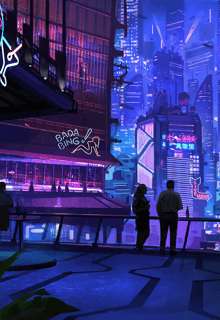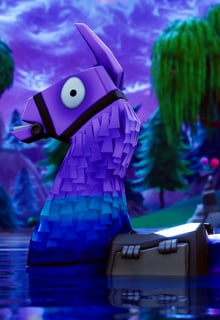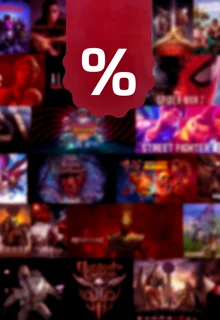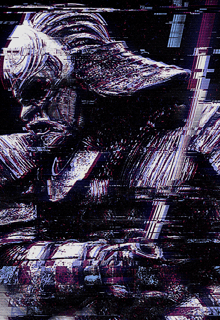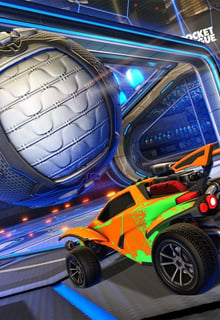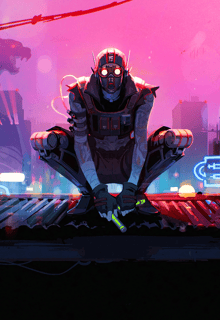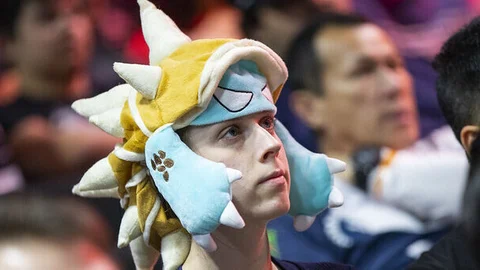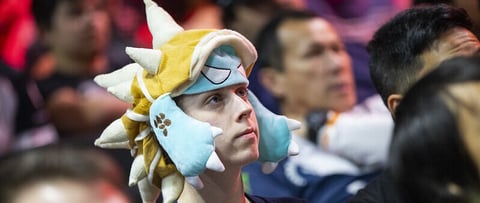
A stadium worth billions dazzles with its lights. The crowd roars. On the stage come out... five pimply teenagers? One of them has colorful hair and carries a banana. But fans greet them like gods and women scream when the awkward youths look their way. Have you ever looked at a large esports tournament and thought... how can this be real? Today, we at EarlyGame are going to try and convince you that esports is an alternative reality that only occasionally brushes up against real life.
Crazy religion
Stop us if you have heard this one before. Thousands of devoted followers gather up in a specific location to gaze upon their champions who battle out an allegorical struggle between OUR SIDE and THEIR SIDE. The devoted often wear the colors of their champions, don masks, or bring writings to honor their favorites.
The crowd is pumped up and goaded by lavish displays of sound and light. Sometimes, they even see the heroes of legend come to life before their eyes.
Gold fills the coffers of the large temple of worship that is esports. And there is no other way to say it, it's our gold, and we give it willingly. Why? Because to be an esports fan, one first needs to be a gaming fan. Playing and loving a game is a way of life now. To see the best of the best get out in the arena and play the game that you, yes YOU, play on a daily basis... well, that's the best feeling ever. For an esports fan, that's like having a part of them out there in the scene.
Also, it has the most childish, yet amazing sense of humor. Any game that has this on a professional level is worth it:
We have our own language
If a person who's not into gaming or esports hears an esports caster in a moment of passion, they would think the caster is speaking another language. Credit where it's due, esports casters can really be out of this world. But to the uninitiated, it just sounds like inane gibberish that's clearly got nothing to do with standard English. We'll call this language... Esportese.
Esportese has evolved, just like other standard languages, from the common family of English and Germanic. However, it acquired its distinguished flavor when it underwent the influence of the following factors:
Shortening: Things happen fast in esports. That's why every single word that could be shortened, has been shortened. Terms became acronyms, acronyms became words of their own. No one ever asks what a BKB or AWP stands for. So "Play of the Game" becomes PoG. "Champion" becomes "Champ". Suddenly... you have "PogChamp" and because language is crazy, you can see people spamming "POGGERS" these days.
The great memetic shift: The influence of memes on the language is a bit unorthodox. Since memes can be both text-based and picture-based, it was the culture around streamers and Twitch chat that intermingled memetic text, memetic pictures or a combination thereof (such as saying "sadface.jpg") to create an entirely new way of talking. Since most of esports is streamed live, it flowed there like a big river full of phallic references.
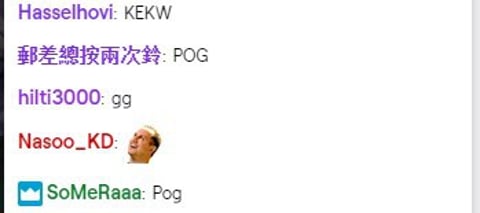
Portals to reality
It's no wonder, then, that what we consider to be "normal" appears so horribly out of place in esports. If you have ever had the misfortune of reading an official press release, you know what we're talking about. Stuff business language tends to clash horribly with esports:
"Speakers from established professional esports organizations will share their knowledge on the topic. The venue will welcome representatives of Fighting PandaS, Ninjas in Pyjamas and Unicorns of Love to share their experience in the industry."
Just ridiculous. If you're watching an esports tournament and you see a sponsor's well-dressed CEO who has never played a game in their life appear before the audience, keep an eye on how out of place they seem, too. That's because they are intruders to this world, arrived from outside to profit from it, invest in it, but never be a living, breathing part of it. And there is nothing wrong with that, it just shows how different the two worlds really are.
That is not to say that the regular world has no impact on esports, on the contrary. We have seen time and time again how important external influences can be. Just recently, the outbreak of the coronavirus caused massive delays and cancellations for various esports tournaments. There have also been multiple attempts to make esports an Olympic discipline, all ending in failure. There are arguments for both sides but ultimately, esports is just its own thing.
Bottom line
Esports is real life, but on acid. It is a beautiful, colorful subculture that often makes little to no sense. It also stands in stark contrast to the world we live in. Income inequality keeps going up, with money flowing from the poor to those who are already rich. Large population shifts and civil unrest have put an ugly dent in cordial human relations. Add to that the growing effects of climate change and pollution, and there is no wonder everyone wants to just watch some professional Dota 2 instead and make jokes about GabeN. Having esports as a hobby is affordable, fun and relatable.
People want to have this joyful world apart from their real life, not joined with it. It exists for the same reason humankind invented books, movies, and songs. Our bored monkey brains create alternative realities and then scream "POGGERS" into the Void.




